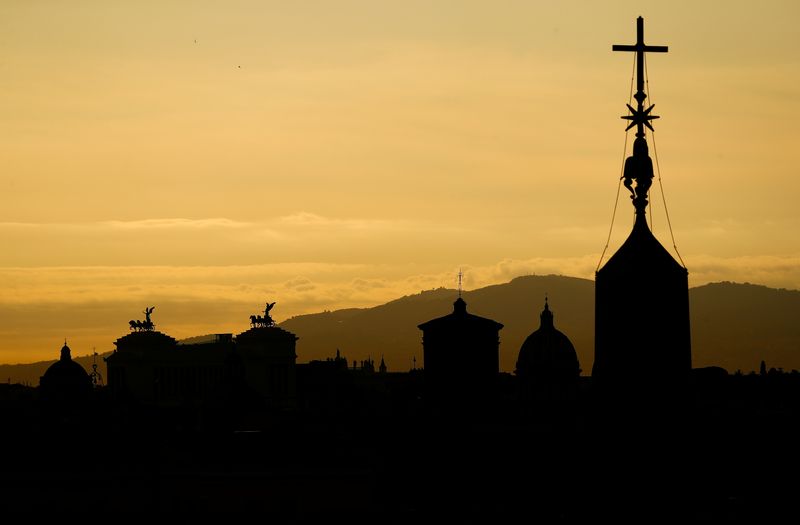By Alberto Chiumento
(Reuters) - The number of Italians choosing to be cremated at the end of their lives has surged over the last 30 years as cultural changes, cost and a more secular society weaken the support for a traditional burial.
Italians had long favoured burial for the deceased, either under ground or in a tomb, reflecting the influence of the Catholic Church. Once viewed as a challenge to religious and family customs, cremation has now become a more accepted choice.
In 2023, 252,075 people were cremated in Italy, representing 38% of total deaths, a sharp rise from under 3% in 1995 when funerals sector association Utilitalia SEFIT began collecting data.
All Souls' Day on Nov. 2 remains a time for visiting relatives' gravesides, but Italians are less likely to be paying their respects on other occasions.
"Routine visits to cemeteries stopped being a weekly or monthly activity as we now live in a society that has less of a penchant to engage with the realm of death," said Alessandro Gusman, Cultural Anthropology professor at University of Turin.
The Catholic Church decided in 1963 that a Christian funeral could be offered to those being cremated, a practice it had previously banned. The Vatican's guidance is for ashes to be stored in sacred places such as church or cemetery.
Many Italians opt for cremation because leaving ash urns in cemetery niches requires less upkeep and time than after traditional burials, reducing the burden on relatives and the risk of neglect.
"This is why we say that cremation is now a choice shared with family and loved ones, while many years ago it was often a way to go against them," said Cristina Vargas, scientific director at Fondazione Fabretti, which focuses on issues related to death, dying, and funerary practices.
Cremation is often cheaper than burial due to lower coffin and land costs.

Mostly provided by private companies, the maximum price tag in 2023, regulated by Italy's Health Ministry, was 731 euros ($788) for a cremation. The price for a burial runs into thousands of euros.
Another motivating factor is to avoid the body being disinterred, the removal from a cemetery slot, above or below ground, which in Italy is mandatory in most cases after 10 or 20 years and is traumatic for relatives who attend the event.